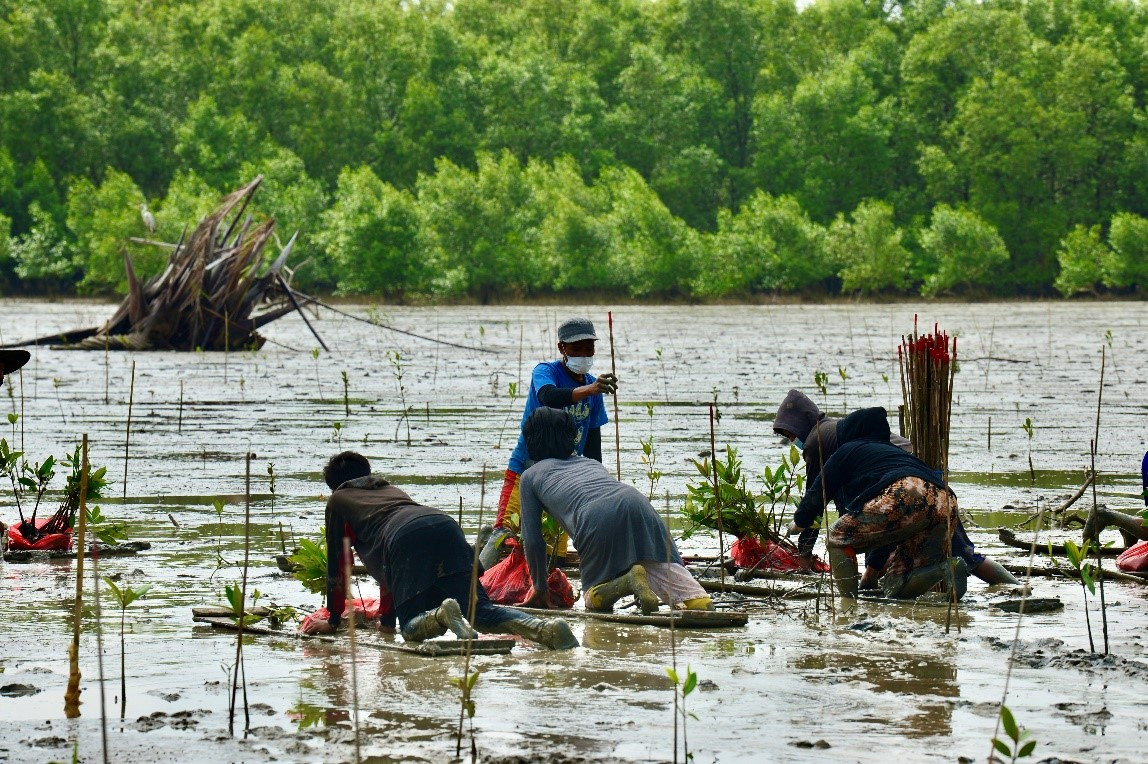Popular Reads
Top Results
Can't find what you're looking for?
View all search resultsPopular Reads
Top Results
Can't find what you're looking for?
View all search resultsIndonesia steps up fight against climate change
President Joko “Jokowi” Widodo has pledged that Indonesia is fully committed to controlling climate change, including reducing emissions by 29 percent by 2030.
Change text size
Gift Premium Articles
to Anyone
P
resident Joko “Jokowi” Widodo has pledged that Indonesia is fully committed to controlling climate change, including reducing emissions by 29 percent by 2030. Emission reduction will be focused on the energy sector and maritime sector, as well as forest governance and land management.
The government is focusing on rehabilitating and restoring the mangrove and peatland ecosystems in order to assist Indonesia in fulfilling the commitment it made for the Paris Agreement.
Indonesia has one of the largest mangrove areas and the fourth-largest amount of peatland in the world. Mangroves have the ability to absorb carbon at a rate four-to-five times greater than mainland tropical forests, while the country’s tropical peatland stores 30 percent of the world's carbon reserves.
Through the Mangrove and Peatland Restoration Agency (BRGM), peatland restoration has started in Riau, Jambi, South Sumatra, West Kalimantan, Central Kalimantan, South Kalimantan and Papua.
This year, the BRGM has built 85 deep wells, 850 blocking canals and 18 backfill canals, revegetated 510 hectares and rolled out 244 livelihood-revitalization programs.
Meanwhile, work to rehabilitate mangroves has also begun in nine provinces, namely North Sumatra, Riau, Riau Islands, Bangka Belitung, West Kalimantan, East Kalimantan, North Kalimantan, Papua and West Papua. President Jokowi is targeting 34,000 ha for 2021 by planting 29,500 ha of mangrove across the nine provinces
"2021 is the first year when the accelerated mangrove rehabilitation program started, so with the data we have, we chose a location with a high probability of success and well received by the community," Hartono, the head of the BRGM, said.
So far, the program involved 470 community groups (pokmas) and a technical design for 83 percent of the mangrove-planting locations has been prepared. This effort is expected to be accomplished by November 2021.
The mangrove-rehabilitation program has also been proven to be beneficial for the economy, especially in the wake of the pandemic. Hartono said the project was in the context of National Economic Recovery (PEN). “This means that all work is done by the community, with an account to account payment model. So, it doesn't involve third parties," he explained.
Moreover, support from the community has been garnered from Independent-Village Cares for Peatland and Independent-Village Cares for Mangroves. The two were formed to integrate the protection and management of peat and mangrove ecosystems in a sustainable manner.
"We have formed 75 DMPGs and 220 DMPMs to ensure that the community is educated and the activities that have been carried out in the villages can be maintained and continued by the community," concluded Hartono.










